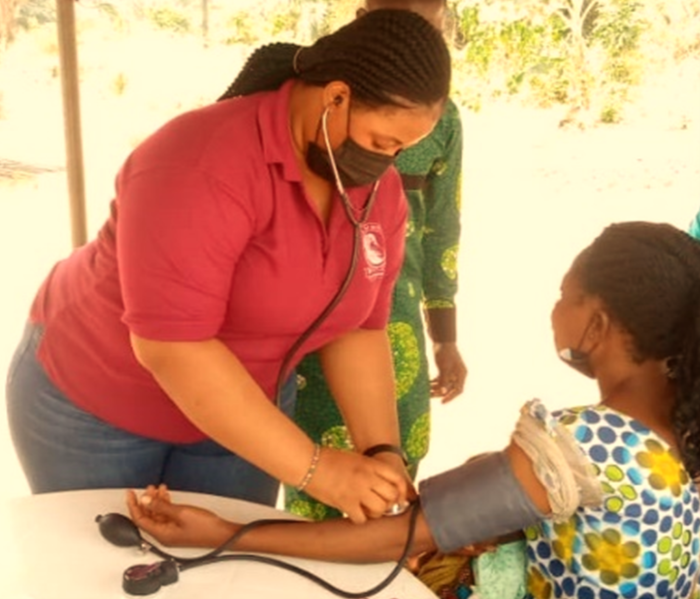Ebonyi State Student Nurses Deliver Services in Hard-to-Reach Communities
Even though primary health care (PHC) centers remain the predominant source of health care for most Nigerians, it has been a challenge for most PHC centers to provide comprehensive and high-quality care. In Ebonyi State, PHC centers continue to suffer shortages in the availability of key health personnel, particularly in hard-to-reach communities. The shortage of human resources for health (HRH) is exasperated by disproportionate distribution of health workers to urban areas, fragmented governance and weak coordination mechanisms, dilapidated health facilities, and poor funding.
The United States Agency for International Development (USAID) Nigeria Health Workforce Management (HWM) Activity is supporting the Ebonyi State Government to fill these gaps by working with pre-service health training institutions (PSHTIs) to attend to the health care needs of rural populations in the State. The HWM Activity helps PSHTIs obtain and/or maintain full accreditation and helps students gain practical experience.
In February 2022, HWM partnered with the Ebonyi State Ministry of Health (SMOH) and the USAID Integrated Health Program (IHP) to host an Open Maternity Day (OMD). PHC centers host monthly OMDs to provide women—both pregnant and postpartum—and their families high-quality pregnancy, delivery, and family planning services to help them make informed reproductive health choices. This OMD in Ebonyi State was carried out in 23 PHC centers across 13 local government areas.

The SMOH HRH Unit, with the support of HWM, mobilized 60 final-year student nurses from six PSHTIs to participate in this OMD. The student nurses supplemented the health workers who normally work at the OMDs. The OMD helped bridge the gap between theory and practice for the students through practical learning in a real-life reproductive health setting.
“I was able to attend to pregnant women, children, and even men,” a student nurse from Evangel University said. “This experience has opened my eyes to the importance of this profession to humanity and the knowledge I gained here will better equip me for more practical experiences.”
She added that with greater mobilization and awareness efforts, OMDs can reach even more women with prenatal care and decrease the reliance on traditional birth attendants (TBAs).
